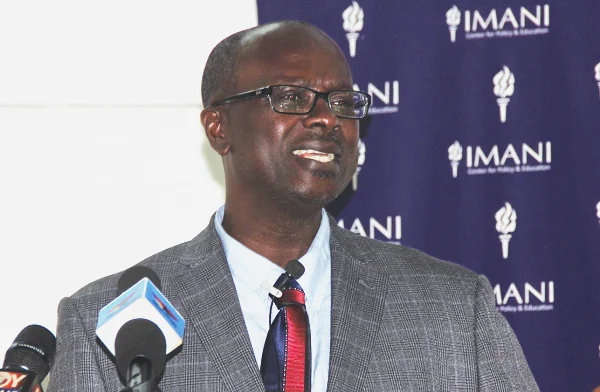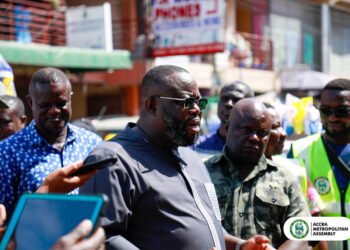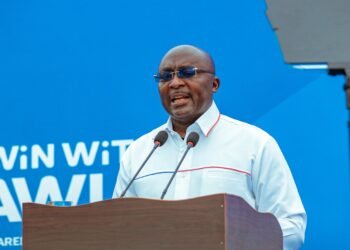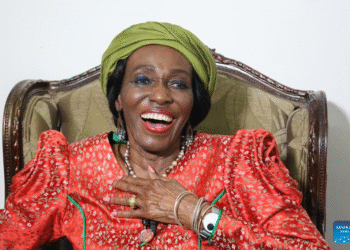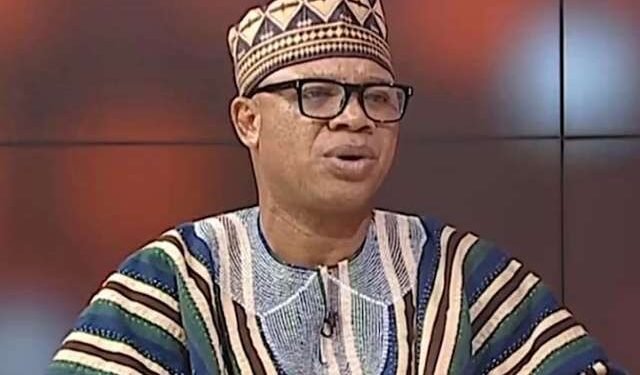Renowned legal scholar and Fellow at the Ghana Center for Democratic Development (CDD-Ghana), Professor Stephen Kwaku Asare, has described the sale of public lands at prices far below their true market value as nothing short of grand theft, urging that such actions should be treated under Ghanaian law as crimes of “willfully causing financial loss to the state.”
In a powerful and uncompromising critique, Professor Asare — widely known as Kwaku Azar dismantled what he called a convenient lie often used by politically connected individuals to justify their acquisition of public lands at giveaway prices.
“They say buying public land at a ridiculously low price is not necessarily a crime. That’s how the powerful baptize theft and call it ‘policy.’ But when you take land worth $1 million and pay $10,000, you haven’t made a smart deal; you’ve stolen the difference. Simple!”
Professor Stephen Kwaku Asare
He argued that underpaying for public property is no different from overpaying for government contracts — both result in the state’s financial loss and must attract equal legal consequences.
“We all know when the government overpays, it’s looting. That’s why the AG flagged the DRIP Program — invoices showed the government paid $84,000 for equipment that cost $40,000.
“That’s willfully causing financial loss to the state. If overpaying is a crime, underpaying for public land should be too. It’s the same fraud — just wearing different shoes.”
Professor Stephen Kwaku Asare
Professor Asare drew a vivid analogy to the everyday Ghanaian experience to make his point. “In our families,” he said, “if the abusuapanyin sold a family land worth ₵5 million to his friend for ₵100,000, he’d be disgraced, characterized as opanyin toto, castrated, and banned from future family meetings.”

Bureaucratic Euphemisms
Yet, he lamented, when public officials engage in similar acts, they are protected by bureaucratic euphemisms such as “allocation.” According to him, these so-called “allocations” are simply the refined tools of elite corruption, “how the powerful steal with pens instead of crowbars,” as he put it.
“They use valuation reports, allocation letters, and official seals to sanitize what should rightfully be called theft. It’s not governance; it’s grand larceny in legalese”.
Professor Stephen Kwaku Asare
Professor Asare insisted that public land is not political booty to be shared among the privileged few, but a collective national asset belonging to ordinary citizens — “the nurse in Tarkwa, the teacher in Sefwi, the trotro driver in Madina.”
However, he observed, when government land is being parceled out, the call never goes to such people. “It goes to the connected ministers, MPs, CEOs, judges, financiers,” he said.
While they call it “allocation“, Professor Asare called it appropriation with a smile, adding that it willfully causes financial loss, and it should be punished as such.
Ghana’s Widening Wealth Gap and Opaque Real Estate Boom
Raising questions about Ghana’s widening wealth gap and opaque real estate boom, Professor Asare noted that many of the high-end homes springing up across Accra are not built on genuine economic productivity but on privilege and state capture.
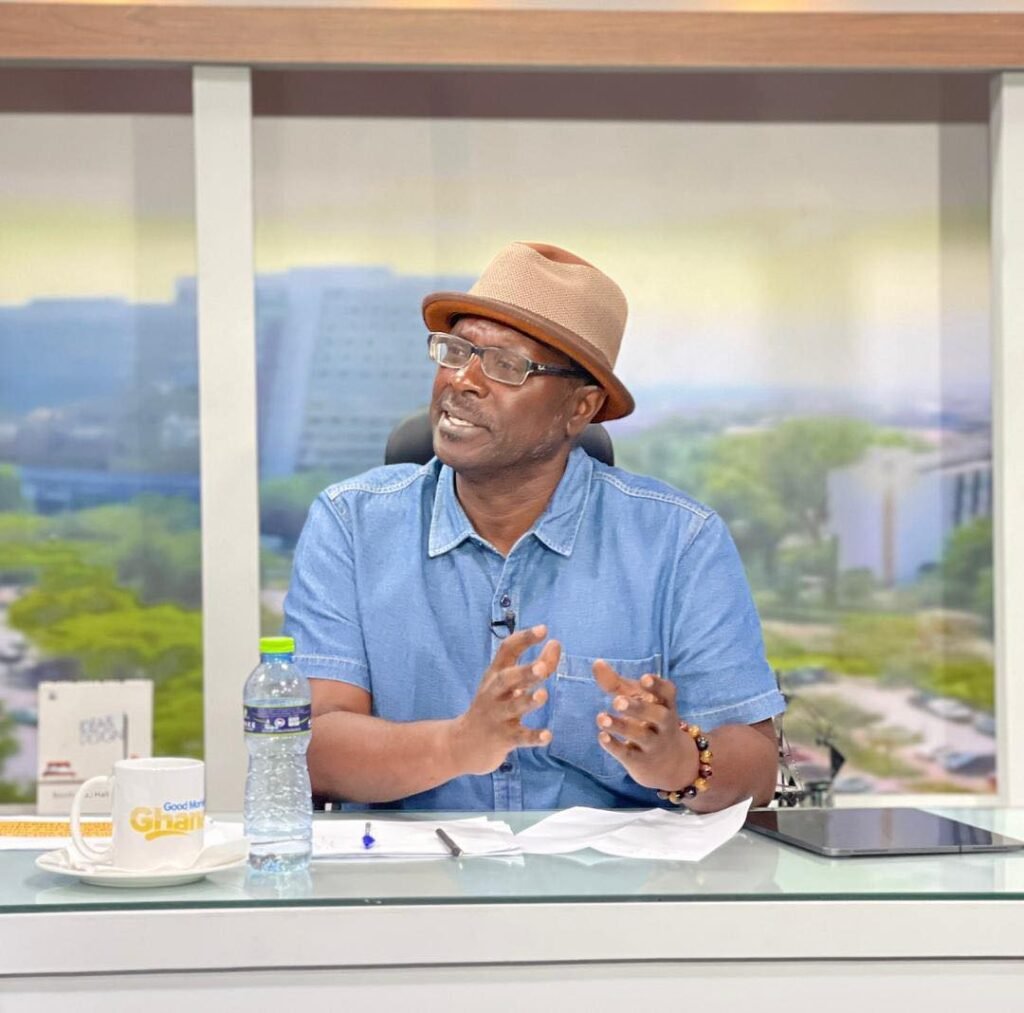
“You look at the houses and condos springing up across Accra and wonder what salary, what savings, what job produces that? Not the teacher’s. Not the nurse’s. Not the engineer’s. Not the doctor’s. Only those with access to state resources, insider information, and cheap public land can build like that.”
Professor Stephen Kwaku Asare
He argued that this system has produced a distorted property market — “a phantom real estate market where the looters launder their loot,” with ordinary workers paying the price through skyrocketing rents. “Every underpriced acre is a subsidy for looting — a hidden transfer from the poor to the powerful,” he stressed.
Decisive Reforms
Calling for decisive reform, the CDD-Ghana Fellow demanded that all discounted land sales be investigated, all beneficiaries identified, and all such transfers reversed.
“Let the law treat it as the economic crime it is,” he urged. He proposed a new legal standard that would make it illegal for any public land to be sold, leased, or transferred for less than its fair market value, independently determined and publicly disclosed before the sale.
“Any transaction below value shall constitute willfully causing financial loss to the state and be null and void,” he said. Professor Asare emphasized that accountability must extend to both sides of these questionable deals — the public official who authorizes them and the private individual who benefits.
“Looting of public lands requires two hands – the public official who approves the sale and the party who ‘buys’ the land. Both must be held accountable”.
Professor Stephen Kwaku Asare
Citing the 1992 Constitution, he reminded public officials that all public lands are vested in the President “in trust for the people of Ghana” under Article 257(6). “That trust is not personal or partisan; it is sacred,” he said, warning that selling land far below market value represents a betrayal of that constitutional trust.
Turning his focus to the buyers, Professor Asare dismissed claims of ignorance, arguing that no one purchasing a government plot in an elite neighborhood like Cantonments for a fraction of its worth can claim good faith.
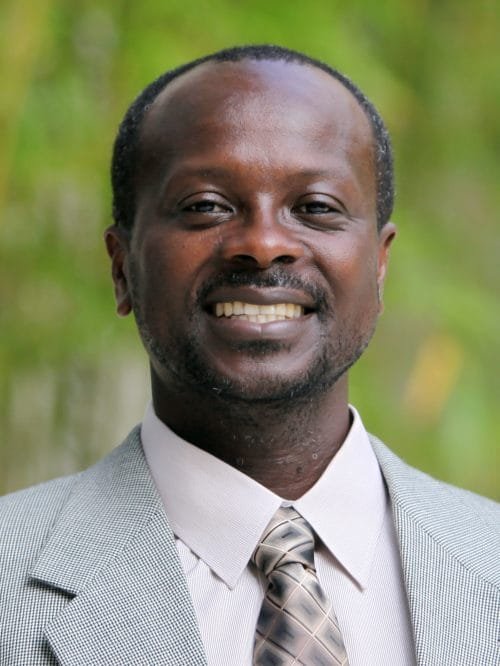
“When a well-connected buyer knowingly acquires public property for a fraction of its true value, he becomes an accomplice — guilty of dishonest receipt of state property, or aiding and abetting financial loss.
“He is not a buyer in good faith because good faith cannot coexist with unjust enrichment at the public’s expense.”
Professor Stephen Kwaku Asare
He called for laws that would establish joint and several liability between the seller and the buyer, ensuring that both “the giver and the taker face justice” and that “neither public office nor private greed can hide behind the other’s shadow.”
Concluding his argument, Professor Asare reiterated that the government should refrain from selling public lands altogether unless absolutely necessary.
And when it does, he insisted, it must be done “transparently, at market value, and for public benefit, not as political reward or personal enrichment.”
He summed up his warning in striking language: “Theft with a title deed is still theft. And when the people’s land becomes a playground for the powerful, democracy itself becomes the casualty.”
READ ALSO: Rubio Heads To Israel In Support Of Ceasefire Implementation



